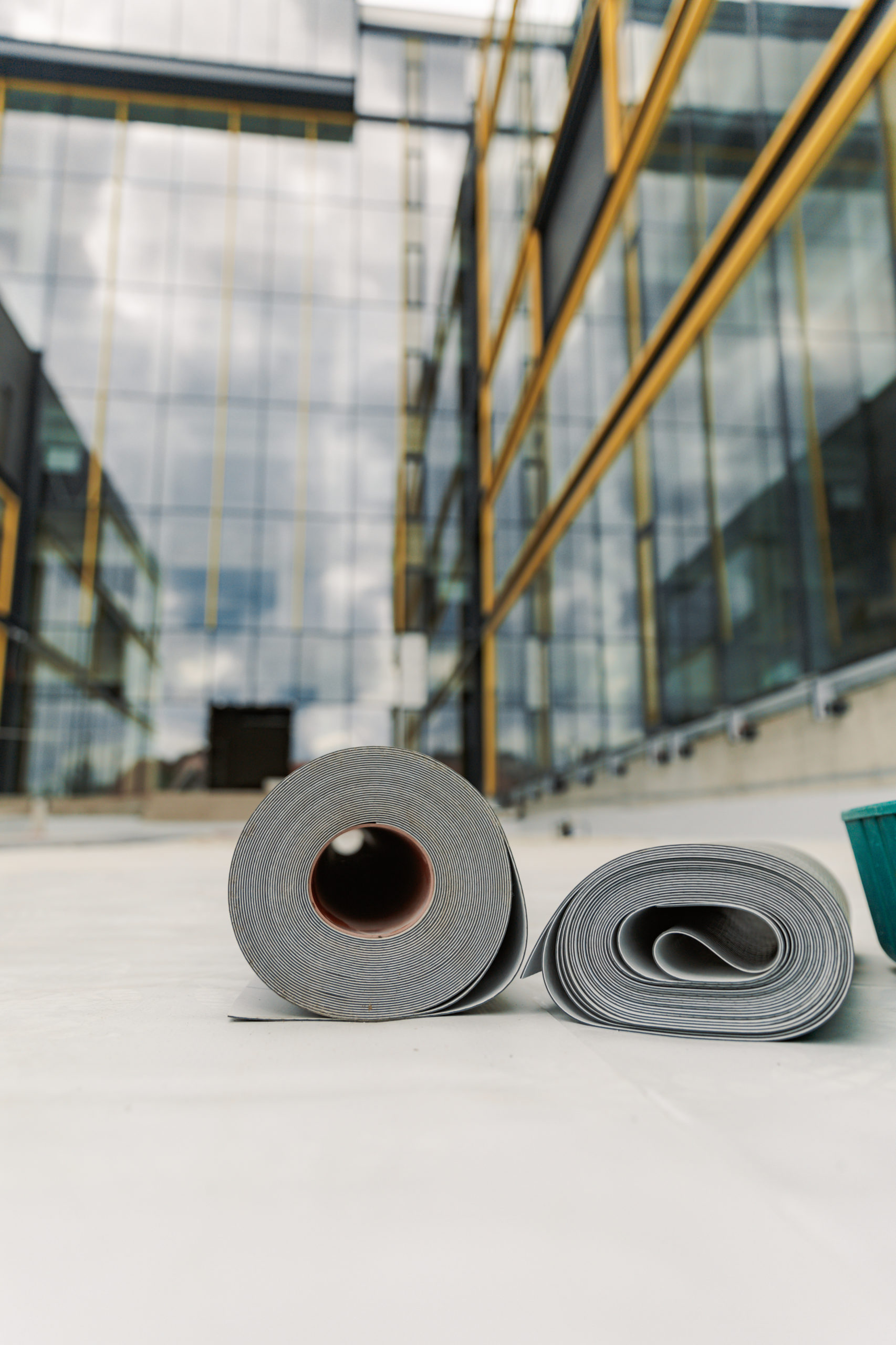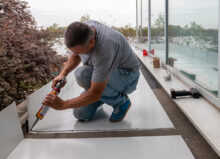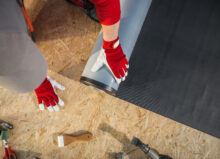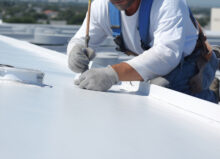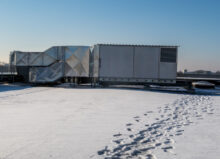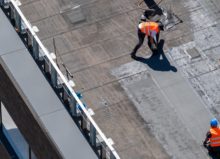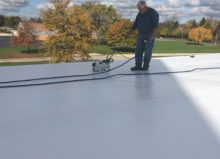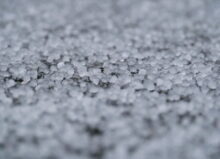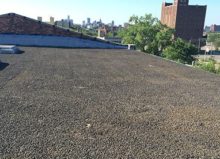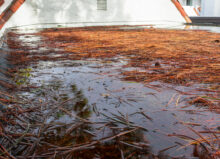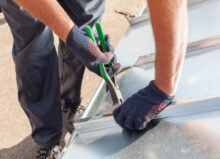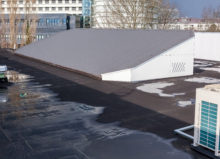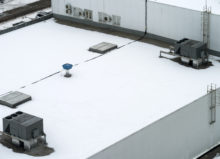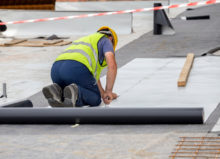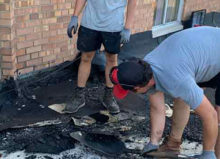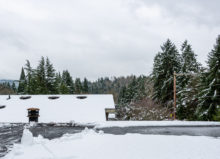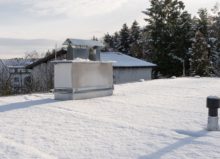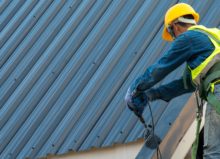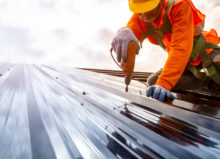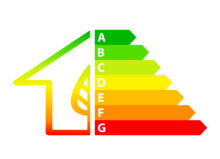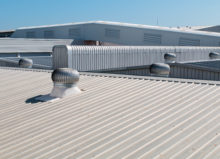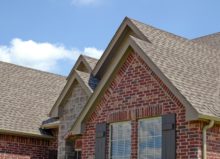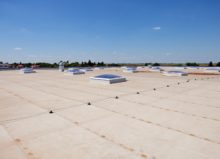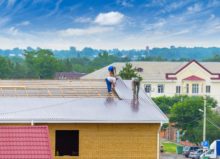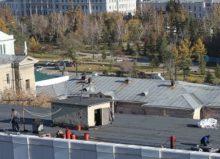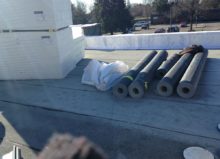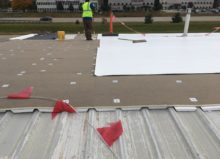TPO Versus PVC Roofing: Which Is Better for Your Roof?
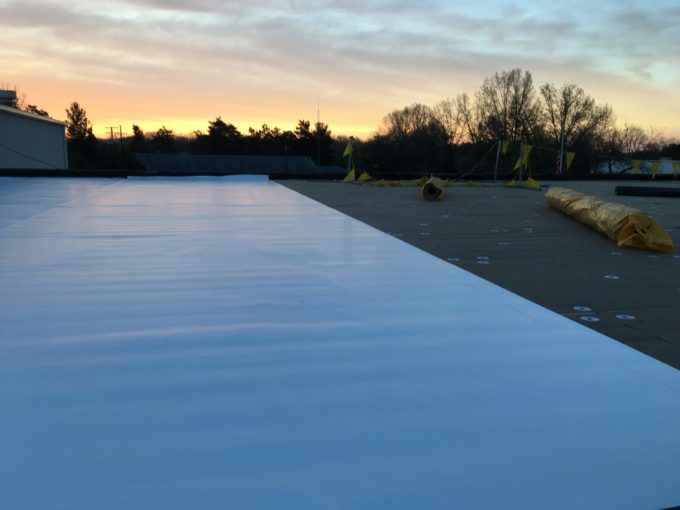
The average commercial roof lasts between 15 and 30 years, but its lifespan varies based on how often it’s maintained, the environmental conditions it’s exposed to, and the type of material it’s made from.
TPO and PVC are two of the most common material options used on low-slope commercial roofs. If you need to replace your existing system, it can be challenging to understand which option is right. Neither option is inherently bad; it just depends on where you’re located and what your roof will be exposed to.
TPO Benefits & Disadvantages

TPO (thermoplastic polyolefin) is a newer material on the market that blends rubber, polypropylene, and propylene into a three-layer, single-ply material that covers the entire roof.
Benefits:
- Thin and lightweight with fewer seams, which makes it easier to install.
- Reflective, which helps improve energy efficiency.
- Resistant to mold, punctures, tears, and UV damage.
Disadvantages:
- Not as resistant to puncture as other roofing systems.
- It’s a new material, so not much is known about its lifespan, so it may not last as long as PVC roofing.
- Will become brittle and shrink when exposed to high temperatures.
- Its formula has changed since it was introduced onto the market over 30 years ago, making it even more difficult to fully understand its disadvantages.
PVC Benefits & Disadvantages
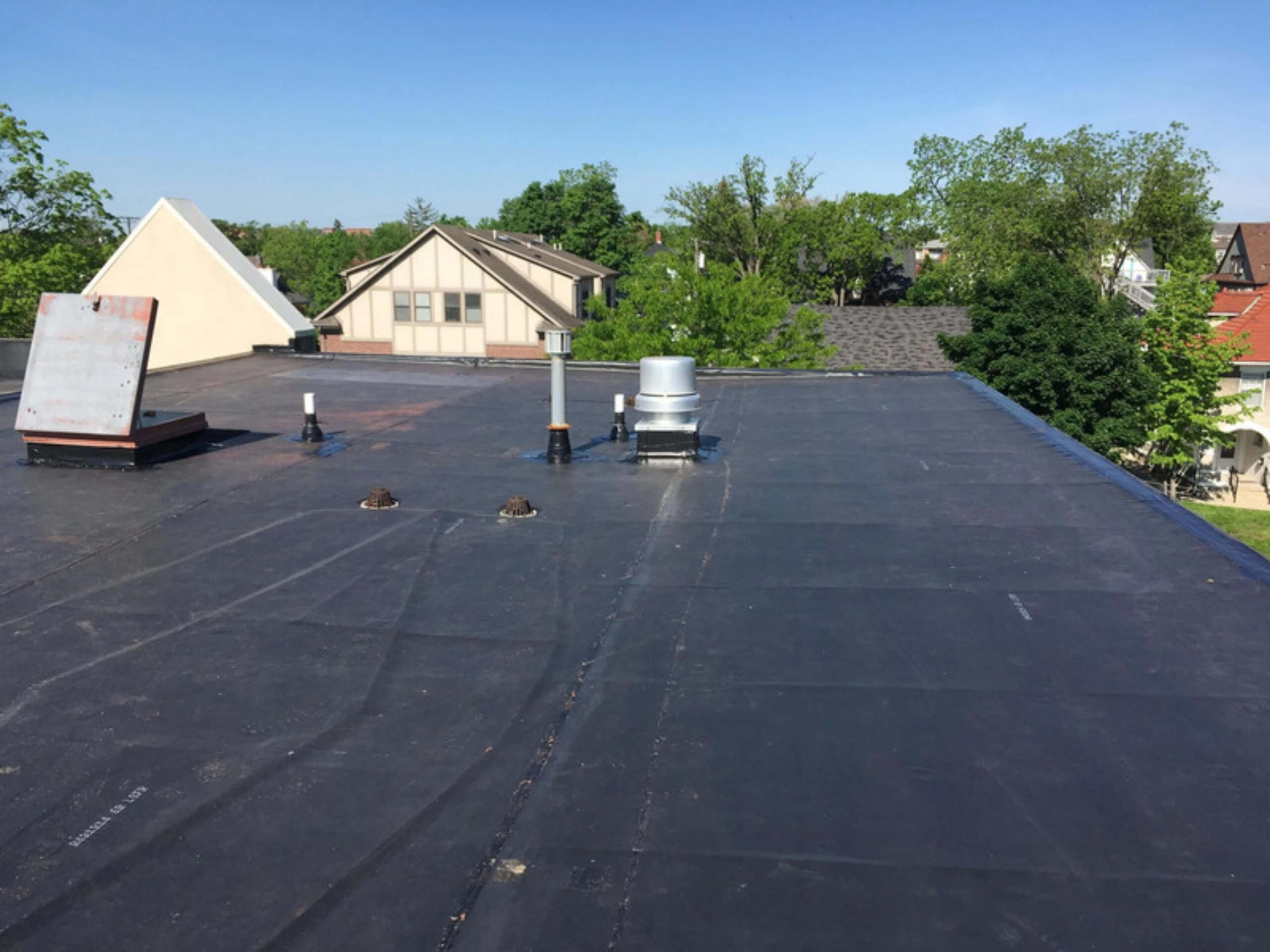
PVC (polyvinyl chloride) is a thermoplastic roofing material featuring heat-welded seams.
Advantages:
- Its heat-welded seams form a watertight barrier, making it less likely to leak.
- Longer lasting (up to 30 years).
- Highly energy efficient due to its light color.
- Resistant to UV, fire, and mold, and available coatings can strengthen UV resistance.
Disadvantages:
- Not as resistant to extreme temperature changes.
- Higher upfront cost.
- Not as puncture-resistant as TPO, and could become damaged during severe thunderstorms if debris hits the roof.
Choosing the Right Material
| Roofing Type | TPO | PVC |
| Lifespan | 15 to 25 Years | 20 to 30 Years |
| UV Resistance | Good | High |
| Fire Resistance | OK | High |
| Chemical Resistance | Good | High |
| Mold Resistance | High | High |
| Wear & Puncture Resistance | High | Good |
| Temperature Resistance | OK | Good |
| Energy Efficiency | High (especially in white, which has high reflectance) | Good |
| Climate | Can withstand all four seasons but performs better in the winter | Can withstand all four seasons |
| Material Costs | Between $4 and $10 per square foot | Between $5 and $15 per square foot |
| Installation | Easy to install | A little more complex |
| Maintenance | May need more maintenance | Requires less maintenance |
Durability & Lifespan
TPO and PVC roofs can last several decades before replacement is necessary. However, PVC roofs tend to have a slightly longer lifespan of 20 to 30 years compared to TPO’s 15 to 25 years. It’s worth noting that proper maintenance is also important to maximize the longevity of your roof.
Both options are also durable roofing solutions. TPO is known for its flexibility, especially in cold temperatures. It also features good UV resistance and is resistant to mold, chemicals, tears, and other physical damage.
Conversely, PVC is known for its ability to withstand winter weather, which is especially helpful in a Midwest climate. PVC is also fire- and chemical-resistant.
Climate/Environment
TPO and PVC roofs are both good roofs for commercial properties in areas that experience all seasons of weather. As we noted above, TPO’s flexibility in cold temperatures is ideal when winter weather strikes, while PVC’s strength and durability help it stand up to the snow, ice, and frigid temperatures that Michigan experiences each winter.
Bottom line: Both roofing options are ideal for climates that experience cool temperatures and winter weather, though PVC tends to be the more favorable option for all climates.
TPO and PVC roofs are also known for their energy efficiency. Due to its reflective properties, TPO is often the preferred roofing type in hot climates.
Costs
TPO is the more affordable option, with such roofs typically priced between $4 and $10 per square foot (including materials and installation). PVC roofs are more expensive, typically priced between $5 and $15 per square foot for materials and insulation.
However, there’s more that you should consider when selecting a new roof than just the upfront price. Don’t discount the importance of a PVC roof’s durability, which results in less maintenance costs over its lifetime. If your PVC roof lasts for 30 years versus a TPO roof that lasts for 22, you’re making up for an initially higher-priced roof by maximizing your investment in longevity.
Installation & Maintenance Complexity
TPO roofs are typically fast and easy to install, while the installation of PVC roofs tends to be more complex.
Maintenance is fairly straightforward for both types of roofs, and it’s also essential to roof longevity. For example, TPO roofs require regular cleaning and inspections for damage. Seam resealing may also be necessary on occasion. PVC roofs also require routine cleaning and inspection. However, PVC roof repair is typically required less frequently than TPO and other types of roofing due to its enhanced durability, which can help make it a more attractive long-term option.
Schedule an Assessment Today
Summit Commercial Roofing has specialized in providing commercial roofing services throughout southeast Michigan since our founding over 50 years ago. We can install, replace, and repair both TPO and PVC roofing. If you need help deciding which material is best for your roof, please contact us today to schedule an assessment. You can also visit our blog for more resources.

